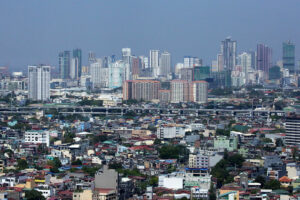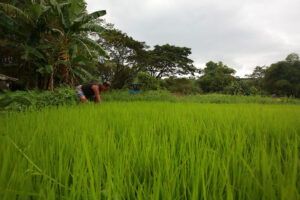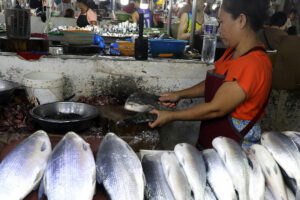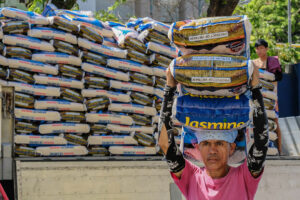
Marcos suspends rice imports for 60 days
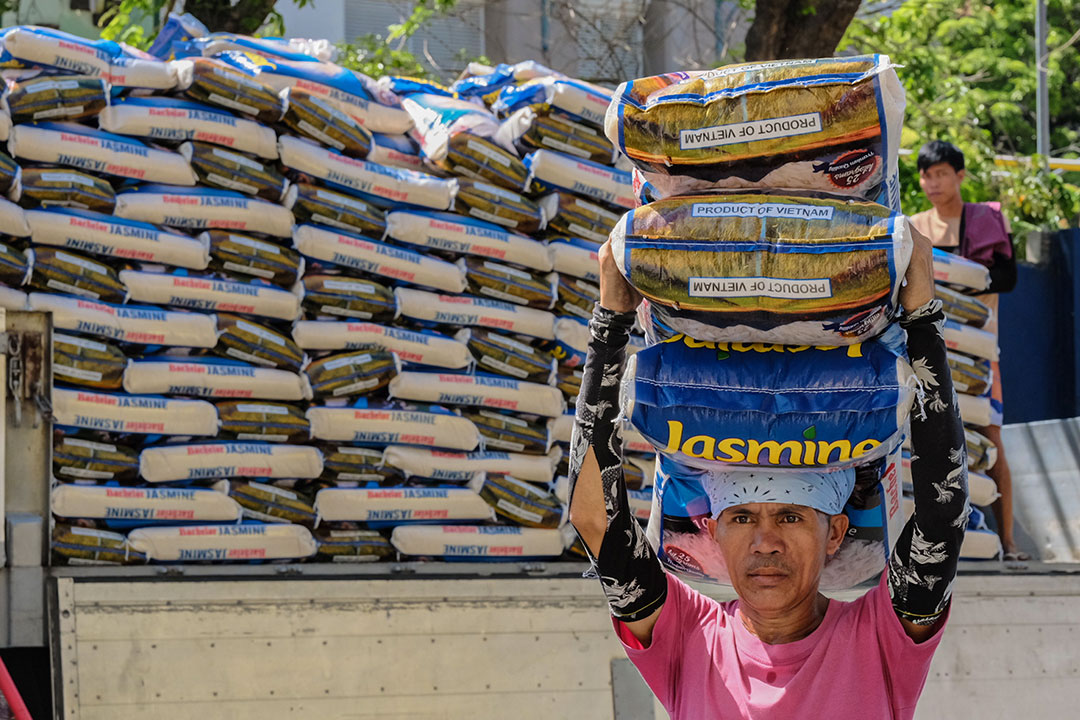
By Chloe Mari A. Hufana, Reporter
PRESIDENT Ferdinand R. Marcos, Jr. has ordered a 60-day suspension of rice imports starting Sept. 1, in a move aimed at protecting Filipino farmers affected by low rough rice prices during the harvest season.
The President acted on the recommendation of the Department of Agriculture (DA) after consultations with his Cabinet while on a five-day state visit to India, acting Presidential Communications Secretary Dave M. Gomez told reporters on Wednesday.
“[The move is] to protect local farmers reeling from low palay prices during this current harvest season,” he said.
Mr. Gomez said there are no plans to act on the DA’s recommendation to hike the rice tariff to 25% from the current 15%.
“We will still see if we need to resort to that. Right now, the decision is to suspend all rice importation for 60 days beginning Sept. 1,” he added.
The Philippines is the world’s biggest rice importer, having brought in 2.44 million metric tons (MT) as of end-July, based on Bureau of Plant Industry data. The country imported 4.7 million MT last year and is projected to exceed that volume this year.
In June, Agriculture Secretary Francisco P. Tiu Laurel, Jr., told the House of Representatives he had recommended gradually restoring the rice import tariff to its original 35% rate from 15%, which was set under Executive Order (EO) No. 62 signed by Mr. Marcos in June 2024.
The 35% rate, valid until 2028, is subject to review every four months.
The debate comes as Philippine inflation slowed to 0.9% in July, the lowest since October 2019, according to data released on Tuesday by the Philippine Statistics Authority.
Food prices dropped, including a 15.9% year-on-year decrease in rice prices, helping ease overall price pressures.
“The suspension is a more calibrated action — one that we can quickly reverse if needed… It gives us the flexibility to act fast to protect both our farmers and our consumers. A premature tariff hike, on the other hand, could backfire and would take much longer to undo,” Mr. Tiu Laurel said in a separate statement.
He said the two-month pause on rice imports would allow the DA to assess the impact on palay prices and the market.
“If this strategy leads to higher farmgate prices and better income for our farmers, we may no longer need to raise the tariff,” he said.
Former Agriculture Secretary William D. Dar said the temporary suspension of rice imports is expected to benefit Filipino farmers by allowing them to secure better prices during the harvest season.
Since imported rice typically arrives 60 days after ordering, the timing supports the local market without disrupting supply, he added.
“The 60-day suspension is good enough to achieve meaningful impact on our rice industry and market,” Mr. Dar said via Viber.
“Inflation will be at very low levels, [and] we are also able to manage enough supply,” he added. “It will always be necessary to pursue a balanced strategy for a win-win arrangement — the farmers getting [a] fair price [for] their produce and the consuming public for a fair price as well.”
Samahang Industriya ng Agrikultura Executive Director Jayson H. Cainglet said the 60-day halt on rice imports offers little real benefit to Filipino farmers, as rice tariffs remain at 15% and unmilled rice prices are expected to stay low.
He argued that EO 62 failed to protect local producers or stabilize the market, with importers able to time shipments around the suspension. With warehouses already full, there is no urgent need for new imports.
“Given these realities, the most effective and urgent course of action is to revert rice import tariffs to their previous levels: 35% for Association of Southeast Asian Nations (ASEAN) imports [and] 50% for non-ASEAN imports,” Mr. Cainglet said via Viber.
Fermin D. Adriano, a former undersecretary at the DA, called the initiative a “political move.”
“If I am [a] trader, having huge stocks in my warehouses, I will just wait for the two months to lapse before I resume importation,” he said via Viber.
“It takes around two months for [negotiations] with Vietnamese sellers and [the] actual arrival of rice imports. This is obviously just a political move.”

